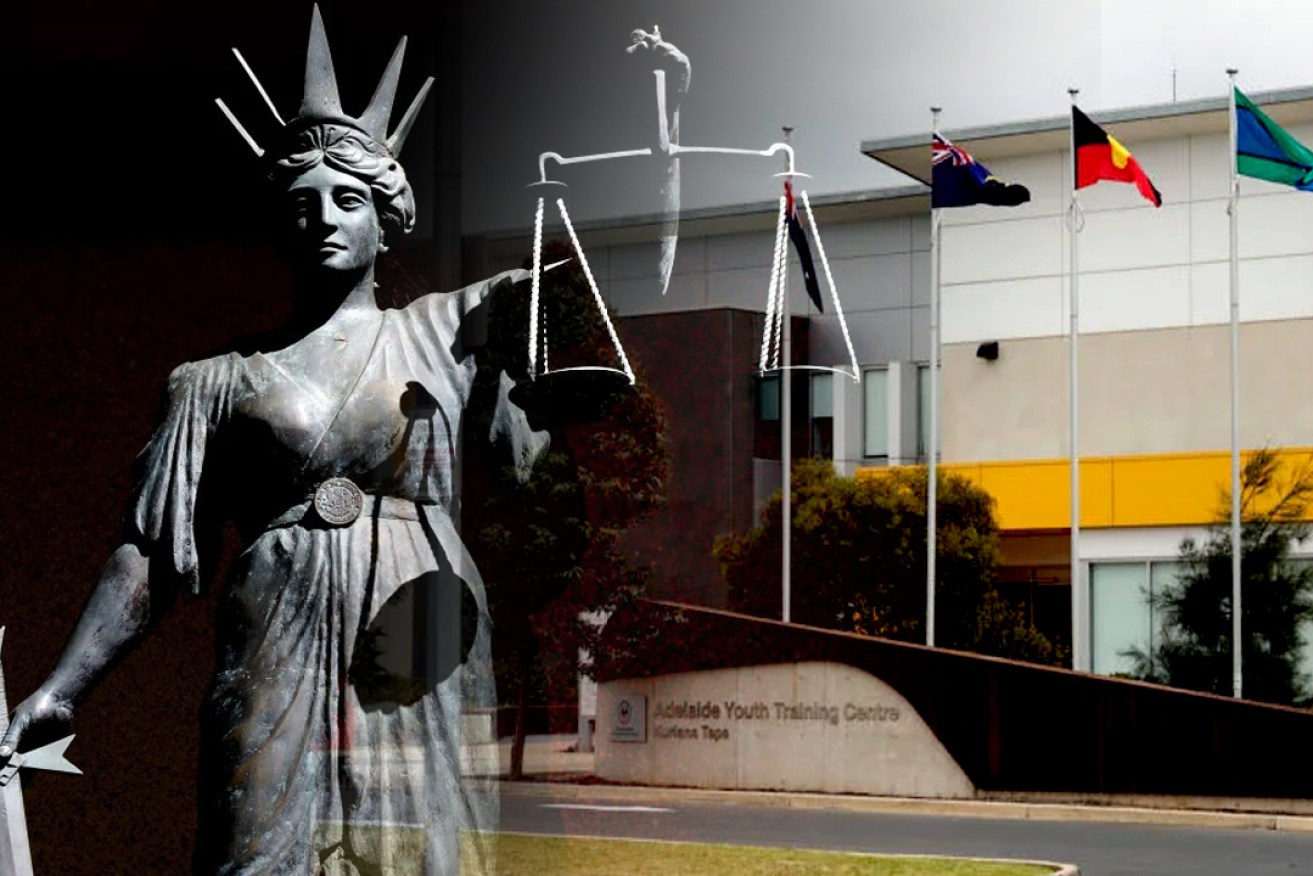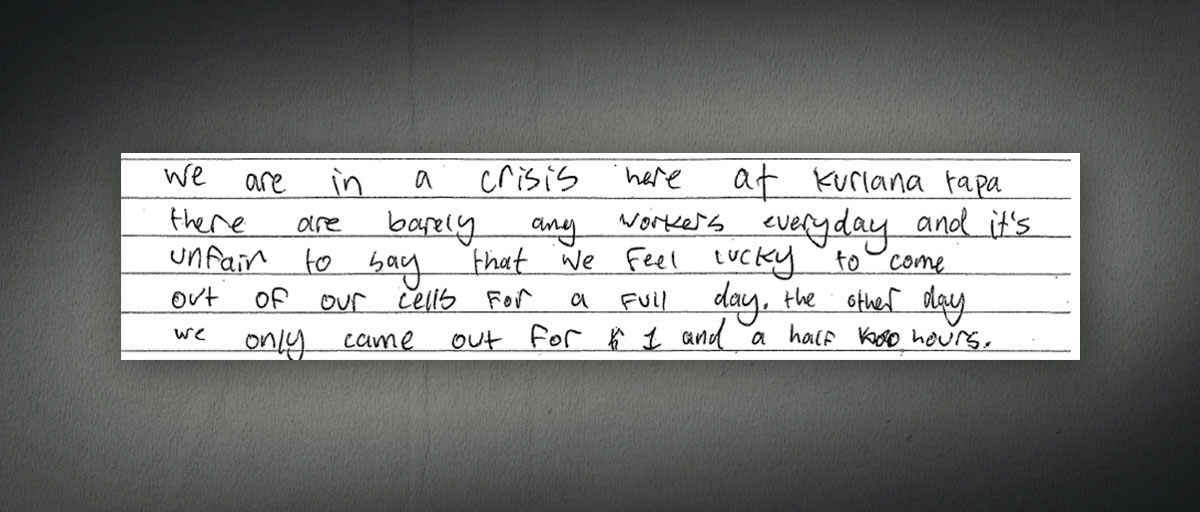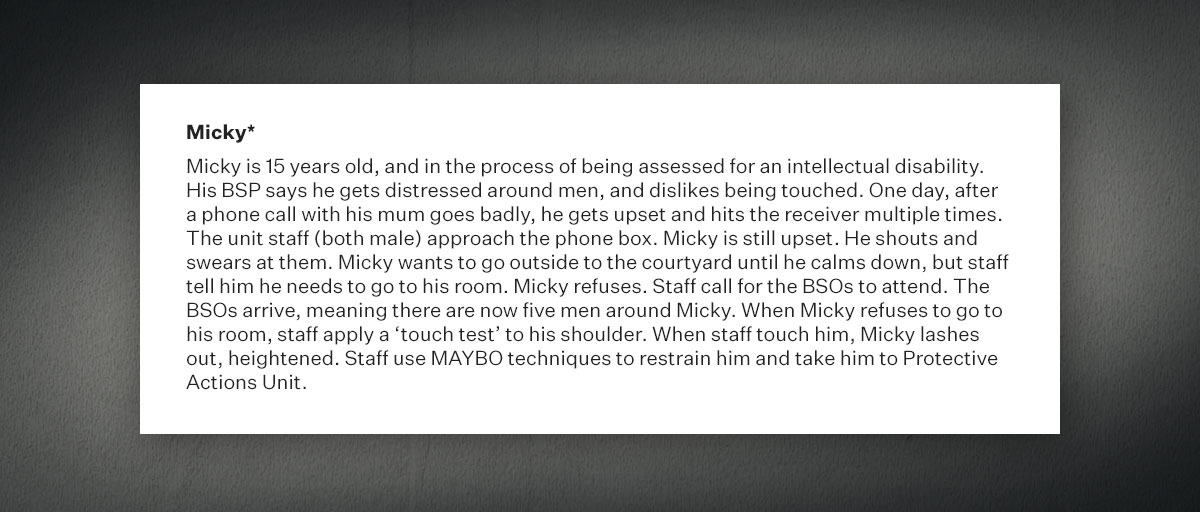Damning report into child self-harm in detention
Grave concerns have been raised about restraints and self-harm threatening children’s safety at the state’s youth justice centre, with a new report saying 93 ligatures were removed from detained young people between April and June alone.


Photo: Tony Lewis/InDaily
Young people in detention were so distressed by conditions in the centre that in some cases they had self-harmed, forcing staff to cut away fabric ligatures with a ‘life knife’, the annual Training Centre Visitor report tabled in State Parliament today said.
The Guardian for Children and Young People and Training Centre Visitor Shona Reid listed 33 separate medical emergencies requiring hospitalisation at the Kurlana Tapa Youth Justice Centre in Cavan over 2022-2023. Thirty one of those cases needed an ambulance to attend.
In that time period, 336 young people were detained at the centre, 32 on an average day, with the report showing 10-year-old children were amongst them for the first time since 2019-2020.
Reid provided information about more than 750 incidents at the centre that have led to 72.4 per cent of young people involved being restrained.
The report shows 48 per cent of those young people were restrained lying face down, one 14-year-old boy was “restrained to prone 15 times across 21 incidents”.
And 16 of those incidents involved 13-year-old children being physically restrained.
Reid has consistently raised concerns about incidents being linked to feelings of isolation because staff shortages mean young people are locked in rooms up to 22 hours a day. At one unit the average period that doors were unlocked each day “was just over eight hours”.

The centre mandated as having the “primary purpose” of rehabilitation “did not function to the standard our community would reasonably expect”, she said in today’s report.
“The longest period a young person spent in the safe room was over seven hours – more than 10 ligatures were removed from that young person during that period,” one story from the centre contained in her report said.
Incidents included young people refusing to return to rooms at the end of exercise, or being told they could not leave their rooms or call friends or family.
“Of these incidents, 47.3 per cent also involved young people engaging in self-harm behaviours – including overdosing on medication, swallowing dangerous items, cutting themselves with sharp objects and tying ligatures,” the report said.
“(In relation to incidents) I am particularly concerned about the risk of head injuries for young people during their detention – multiple restraints (particularly including prone), limited oversight following incidents, prevalent types of self-harm and other risk factors, raise the potential of repeated head injuries.”
Reid pointed out that, “on any given day in 2022-23, 90.4 per cent of young people in the centre were on remand and had not been found guilty of their charges”.
“I remain deeply concerned about the wellbeing of young people detained in our state,” she said.
“I do remain extremely concerned about the impact of detention, and the cumulative effects of a lack of time ‘out of rooms’, on the mental health of young people.
“I believe wellbeing focussed and trauma informed intervention is urgently required across all aspects of the centre, to ensure it can meet its rehabilitative purpose.”
The plight of girls and young women in the centre was particularly highlighted, with 66.9 per cent of them likely to experience self-harm behaviours during an incident compared to 36.9 per cent overall.
And the report’s research showed girls and young women were far more likely to be restrained to prone (face down) during an incident.
Reid said the male-dominated workforce at the centre responsible for girls and young women’s care and control, including restraints, was having a profound impact on their wellbeing.
She again raised concerns about low staffing, with 14.9 per cent of day-time shifts identified as being understaffed by 10 or more operational staff.
There were further concerns about structure and staffing not being “adequate to safely work with young people with a disability”.
“As a result, young people with disabilities are being disproportionately subjected to dangerous and traumatising conditions and practices in detention,” the report said.
It showed three in five young people on any given day in the centre had a diagnosed disability – and young people with a disability were “more likely to have mechanical restraints (such as handcuffs) used on them, as well “as being restrained to the ‘prone’ position”.

An excerpt from the 2022-2023 Training Centre Visitor Annual Report.
Reid said that in South Australia, youth detention is not intended to be a punishment.
She cited the United Nations Special Rapporteur on Torture and Other Cruel, Inhuman or Degrading Treatment or Punishment which states “Solitary confinement, of any duration, on children constitutes cruel, inhuman or degrading punishment or even torture”.
In response to the report, Human Services Minister Nat Cook said the growing number of young people in contact with the justice system presenting with complex mental health and disability related needs is concerning to the Department of Human Services (DHS).
“It is especially concerning when this manifests in self-harming behaviour. DHS has been working closely with Child and Adolescent Mental Health Services (CAMHS) to establish extended services for young people at Kurlana Tapa to increase the accessibility of mental health support. Staff actively monitor young people who may be at risk.”
Cook said the department was also strengthening and further embedding a therapeutic, trauma-informed approach to service delivery at Kurlana Tapa – including more staff training programs around trauma, disability and sensory needs.
Cook said DHS was unable to verify the data analysis around girls being disproportionately restrained “however, appropriately trained staff may only use force as reasonably necessary, justified and proportionate in the circumstances”.
“Use of force is only permitted to prevent a resident from harming themselves or another person,” she said.
Cook said that staff recruitment was also improving through the Youth Justice Recruitment, Training and Retention Strategy, and recruitment was now the “highest and most consistent it has ever been at Kurlana Tapa, outstripping attrition over the past three-month period”.
In the past 12 months, 59 youth workers and youth support workers were recruited to Kurlana Tapa.
Cook also said that the centre’s roster shortages were falling meaning the need to use modified routines had reduced significantly, with less than five per cent of routines impacted since early September 2023.
“In addition to rolling recruitment, DHS is also implementing holistic wellbeing approaches, such as resilience and wellbeing training, as part of the RTR Strategy to improve retention and ensure staff receive the support they need to undertake the complex work at Kurlana Tapa,” she said.




